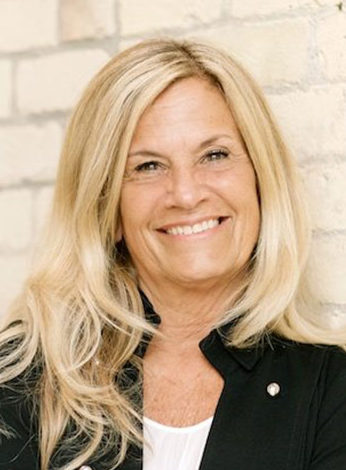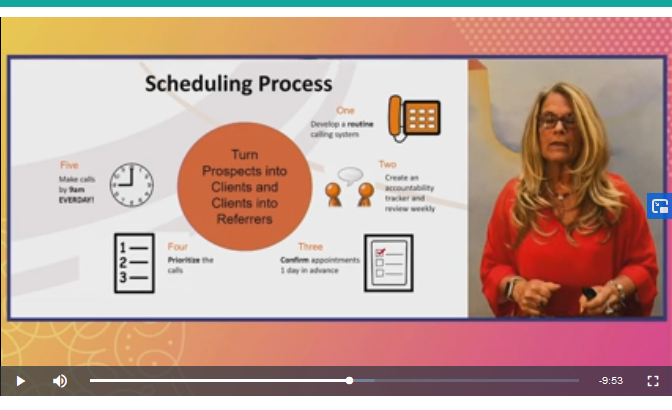Advisers seeking to grow their businesses should be delegating their appointment scheduling and have a scheduling process to ensure they have the right number and right type of appointments they want.
That’s according to Gina Pellegrini, who 17 years ago started Pellegrini Team Consulting and focuses on “training individuals to become rock-star schedulers”. She was speaking during last week’s MDRT Global Conference Virtual Event themed around “Navigating Through Uncertain Times”.

Pellegrini’s session focused around a systematic scheduling process “…to turn prospects into clients and clients into referrers”. She says whether you do it yourself or if someone else is making the calls, the calls need to be made daily to keep your calendar full.
“When you have the right number and type of appointments you want, the business will grow. However, it doesn’t matter if you want three or 23 appointments per week; a routine system makes it happen.”
She believes that advisers need to let go and delegate all scheduling. The adviser, she says, needs to be in front of prospects and clients — not trying to get them scheduled.
…Some advisers will think the scheduler will not be as effective as they are themselves…
She knows some advisers will think the scheduler will not be as effective as they are themselves.
“However, with proven experience as a scheduler, and now as a trainer, I find the reverse to be true. Being consistent on the phone, the scheduler can form a relationship with referrals, prospects and/or clients. They won’t look at the scheduler as a salesperson, even though they are selling the most important thing, an appointment.”
She reminds advisers that doctors or dentists don’t call you to schedule your appointment. “They focus on being in front of their patients just as an advisor should be in front of people.”
She says that to eliminate cherry-picking, a routine system to work the client base is crucial. Ideally, the prospects and clients will pop up regularly. She advocates calling everyone in your system at least twice a year; perhaps on their birthday and again six months later.
She says this means that everyone on the list, client or prospect, will be called for an appointment or to touch base.
Pellegrini says that for the calendar to be consistent, calls need to be made daily, first thing in the morning. “With daily calls, the scheduler will only need about one hour a day. Yes, client service, interruptions, answering incoming calls, etc. are important. However, if calls aren’t made, all the other work wouldn’t be there.”
She says its important too that the scheduler leaves a short message to drive someone to call back. If they don’t call back, call again three days later to create a sense of urgency, and don’t give up.
One of Pellegrini’s main points was to ensure accountability.
She says the schedulers should be tracking their dials daily: calls, reaches and appointments. It doesn’t take much time to make the calls. As an example, if the schedulers average about 23 calls per day, they will make 20 appointments per week, excluding any type of cold calls.
She says that with accountability every week, the adviser will know the calls are being made and that if the calls aren’t being made daily, your calendar will remain inconsistent. When tracking, you can make the appropriate changes to get results. The three things to review are:
- The number of dials per week
- The percentage of reaches
- The conversion of reaches to appointments.
The average is usually 35 percent reached and 50 percent plus of reaches to appointments. If reaches are low, the schedulers might need to increase their dials until they reach more people. And if the appointment percentage is low, they probably need more training to creatively overcome the objections to get the appointment, she says.
MDRT’s online event featured more than 100 speakers across different platforms and covered global and consumer trends along with a large number of practical sessions on running an adviser business more effectively.




